|
1 Comment
General Emilio Aguinaldo decrees December 30, 1898 as a national day of mourningRevolutionary Government of the Philippines In recognition of the aspirations of the Filipino nation and in proclaiming itsnoble and patriotic sentiments, I hereby decree. Article 1. In memory of the Filipino patriots, Dr. Jose Rizal and the other victims of the past Spanish domination, I declare the 30th of December as a national day of mourning. Article 2. On account of this, all national flags shall be hoisted at half-mast from 12:00 noon on December 29, as a sign of mourning. Article 3. All offices of the Revolutionary Government shall be closed during the whole day of December 30. Given in Malolos, December 20,1898 (Signed) EMILIO AGUINALDO The truth was, General Aguinaldo, not the second Philippine Commission headed by Civil Governor Taft, first recognized December 30 as "national day of mourning" in memory of Rizal and other victims of Spanish tyranny. Full text of this decree in two languages, Tagalog and Spanish, appeared in the government organ, El Heraldo dela Revolucion on December 25,1898. It is interesting to recall that the first celebration of Rizal Day in the Philippines was held in Manila on December 30,1898, under the sponsorship of the Club Filipino. This was in pursuance of General Aguinaldo’s Decree of December 20,1898. On the same date (December 30, 1898), the patriotic town of Daet in Camarines Norte, likewise celebrated Rizal Day, the festivities being climaxed by the unveiling of the Rizal monument, which was constructed at the expense of the town folks. This was the first monument ever created in the Philippines and still exists today. http://www.joserizal.ph/yi02.html Accessed May 30, 2011 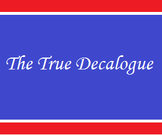 On 24 June 1898, Apolinario Mabini printed a pamphlet that contained the documents The True Decalogue and The Constitutional Program of the Philippine Republic, that form the basic documentation of the programs pertinent to the revolutionary government being established by the revolutionary government of Aguinaldo, in order for the people, in Mabini’s words, to “understand that reason and your conscience constitute the only solid and true basis of your moral education, in the same way that honest work is the real basis for your material education,” (Palma, 1941, 41). Mabini continued by stating that what was contained in the documents were his proposals for the internal revolution for the people to adopt as their moral and behavioral guide, and for the external revolution for the revolutionary government to espouse as the framework of governance. One can observe some of the major expressions of Mabini’s liberal, republican and Masonic ideals in The True Decalogue. Well acquainted with the Masonic moral code, Mabini would expound the liberal, moral and patriotically-oriented code for Filipinos to take in their desire to be free (Majul, 1960, 135.) Instead of the thirty articles of the Masonic moral code, The True Decalogue would be mirroring the ten commandments of Moses, but expressed more fully in the historical context of the Philippines in the late nineteenth century. As the “True” Decalogue, it would combine moral principles and political concepts that were often presented side by side with one another. The boundaries between moral philosophy and political philosophy was blurred in Mabini’s Decalogue, as he saw in the formulations both the realization of moral rectitude and political independence that Filipinos should advance, if Filipinos were to achieve what he termed as the objectives of human life. A perusal of the basic principles expressed in the True Decalogue would reveal its obvious parallelism with the Masonic moral code. Just like the code, the Decalogue would have the first two articles entered on the belief in God and the attribution to all the just, goodness and truthfulness of all existence and being. The second article in the Decalogue paralleled that of the third article in the moral code. The attribution and acknowledgement to the capacity of one’s conscience would lead in the determination of an individual’s belief in, worship to God. This ascription to one’s conscience and the belief in the Supreme Being, would lead to the refinement of one’s character, development of one’s creative skills and capabilities, and the achievement by humanity of the values of goodness, justice and honor necessary in glorifying God. This implied that all men and women were already endowed with the moral conscience that would lead them to the recognition of the Supreme Being, while at the same time working towards the attainment of moral virtues and just conduct. Excerpts from "Masonic Inspirations in Mabini’s True Decalogue and Constitutional Program", IGLPI Journal No 3, 2010; written by Francis Gealogo, PhD, Bagong Buhay Lodge No 4. The True Decalogue First. Love God and your honor over all things; God, as the source of all truth, all justice, and all activity; your honor, the only power that obliges you to be truthful, just and industrious. Second. Worship God in the form that your conscience deems most upright and fitting, because it is through your conscience that God speaks to you, reproaching you for your misdeeds and applauding you for your good deeds. Third. Develop the special talents that God has given you, working and studying according to your capabilities, never straying from the path of good and justice, in order to achieve your own perfection, and by this means you will contribute to the progress of humanity:” thus you will accomplish the mission that God himself has given you in this life, and achieving this, you will have honor, and having honor, you will be glorifying God. Fourth. Love your country after God and your honor, and more than you love yourself, because your country is the only paradise that God has given you in this life; the only patrimony of your race; the only inheritance from your ancestors; and the only future of your descendants: because of your country you have life, love and interests; happiness, honor and God. Fifth. Strive for the happiness of your country before your own, making her the reigning influence for reason, justice and work; if your country is happy, you and your family will also be happy. Sixth. Strive for the independence of your country, because you alone can have a real interest in her aggrandizement and ennoblement, since her independence will mean your own freedom, her aggrandizement your own perfection, and her ennoblement your own glory and immortality. Seventh. In your country, do not recognize the authority of any person who has not been elected by you and your compatriots, because all authority comes from God, and as God speaks to the conscience of each individual, the person chosen and proclaimed by the consciences of all the individuals of a whole town is the only one that can exercise real authority. Eighth. Strive that your country be constituted as a republic, and never as a monarchy: a monarchy empowers one or several families and lays the foundation for a dynasty; a republic ennobles and dignifies a country based on reason, it is great because of its freedom, and is made prosperous and brilliant by dint of work. Ninth. Love your neighbor as you love yourself, because God has imposed on him and on you the obligation to help one another, and has dictated that he does not do unto you what he does not want you to do unto him; but if your neighbor is remiss in this sacred duty and makes an attempt on your life, your freedom and your properties, then you should destroy him and crush him, because the supreme law of self preservation must prevail. Tenth. Always look on your countryman as more than a neighbor: you will find in him a friend, a brother and at least the companion to whom you are tied by only one destiny, by the same happiness and sorrows, and by the same aspirations and interests. Because of this, while the borders of the nations established and preserved by the egoism of race and of family remain standing, you must remain united to your country in perfect solidarity of views and interests in order to gain strength, not only to combat the common enemy, but also to achieve all the objectives of human life. (Mabini, 1941, 103-105)  Mabini Mabini Mabini's inspiration Apolinario Mabini, whose Masonic name was Katabay was General Emilio Aguinaldo's chief adviser during the renewal of the revolution (1898) and considered the Brains of the Revolution. After the declaration of independence in Kawit, Cavite, he printed a pamphlet containing the Constitutional Program of the Philippine Republic and his True Decalogue; which according to him was in order for the people "to understand that reason and (your) conscience constitute the only solid and true basis of (your) moral education, in the same way that honest work is the real basis for (your) material education." (Palma, 1941, 41). It is believed that Mabini's revolutionary philosophy was greatly inspired by Masonry and "Codigo Moral Masonica" which guided Latin Masonry and Filipino Masons of the period. (Iglpi Journal No. 3 issue). His constitutional plan however, was set aside by the Malolos Congress of September 1898 and instead adopted the draft constitution of Felipe Calderon. Masonic Moral Code
Codigo Moral Masonico |
Archives
|
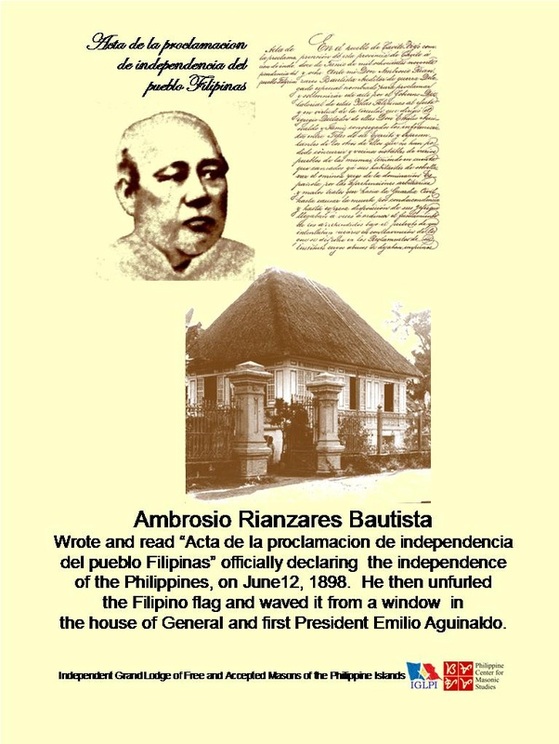
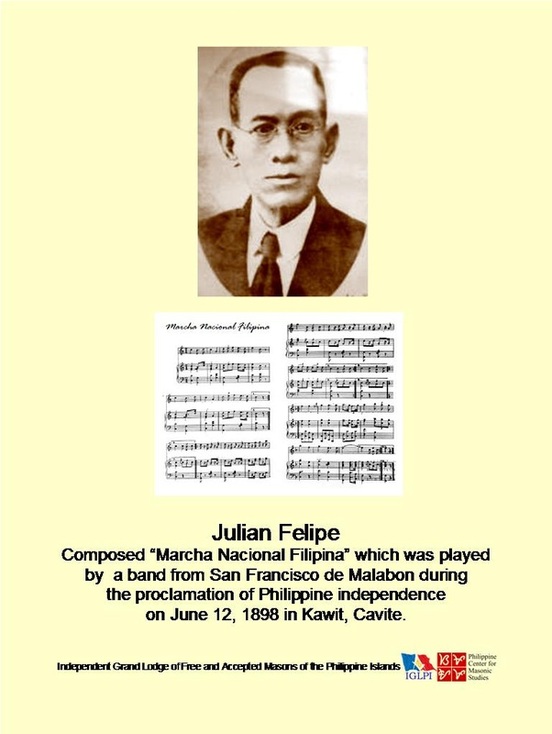
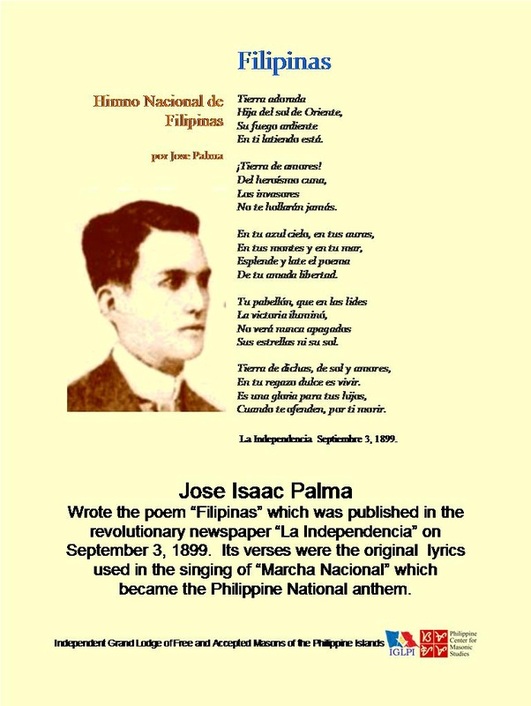
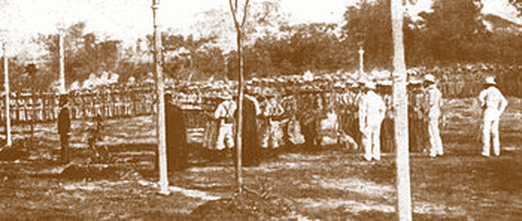
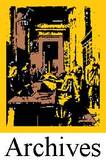
 RSS Feed
RSS Feed